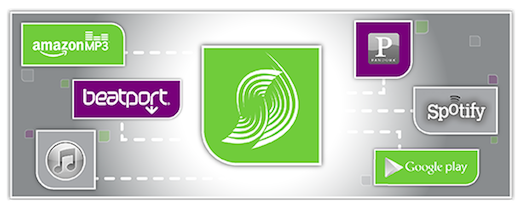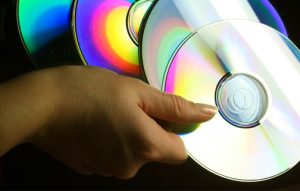
More than ever in the digital age, there is a ton of music out there. Over-saturation is a term often used these days. So if you’re a DJ starting to produce your own music, the need for effective exposure and promotion is huge. If an artist (or a record label) has it, they will sell better – simple as that. Putting it another way: What’s the point of producing great music if nobody gets to hear it?
In my job as a music distributor (I am CEO of a company called Symphonic Distribution), I have been incredibly fortunate to work with several thousand record labels and artists, and my team and I have been able to advise many of them on how to ensure their music sells better. So here are seven quick “tips from the pros” that you can apply immediately to help you get your music heard. Do it from the day you start producing to dramatically increase your exposure and potential.
1. Be consistent
There is so much material being released every single day that it’s hard to be noticed just by one song, especially if you are an independent artist. Don’t put all of your eggs in one album. Rather, do a two-track EP and then another one two months down the line. Releasing music in a “little by little” method is the new way of making it as an artist. By releasing smaller doses, you can use any profits to apply to the next release and/or recording session.
2. Make your album art pop!
No, not Andy Warhol pop, but make it stand out and make it look as professional as possible with high-quality design. As much as everyone loves the music, it’s not all about the music for companies like Apple, Spotify, Rhapsody, Amazon and so on. They want to be able to feature a product that looks amazing on their website. And obtaining real estate on their websites through a featured placement can massively enhance your exposure, give you credibility among other top quality acts, and may impact sales positively as well.

3. Be pro about social
Your social networks, websites, and photos should all be cohesive. iTunes, Beatport, and other stores and streaming platforms all do their research, and there is more of a chance that they will support someone who has more of a social presence – and crucially, someone whose social media presence is well branded. You must at least have a logo or professional press photo, plus a well-designed Facebook cover picture. Make it look great – it’s not that costly any more to get top quality design.
4. Do some online networking
Here’s a truth: There are a ton of blogs out there that are completely user-driven. They are totally dependent on emails from record labels and artists to keep their brands up to date with some of the latest and greatest music. So building yourself an email list of the right people can work wonders.
Don’t spam them, though. Try and engage in an organic conversation with each and every potential blog you contact – and remember to start small. You probably won’t be getting Pitchfork or Vice’s attention right away because they too will do a lot of research. Set yourself up and do some free remixes or songs and send them out to smaller blogs. Once one posts, go on to the next one and so on until you are at the point that a major publication will consider posting.
5. Tell people where to buy your music
So you have an EP out… great! But where do people buy it? Make sure to always communicate effectively and make it simple on your fans. Give them the direct link to your product so that they don’t have to waste time searching. iTunes is the leader in digital sales and they have a handy dandy link maker.
One other fun thing to do is have a “countdown” for your release, perhaps 14 days before it actually drops. Start doing something each day for your fans to keep them engaged right before the release so that when the release drops, it’s as if they have achieved victory and gotten an award for being a dedicated fan.
6. Merchandise yourself!

You may have a gig at which you absolutely kill it – but don’t expect anyone to remember your name or the songs you played unless you give them something that they can physically hold in their hands. Do a business card with a direct link to your music on one side, and on the flipside, tell them where they can interact with you.
Give folks a free download for attending your show, with a download card. Bring free, but professional looking, CDs (yes, there are some people that still use them). Don’t expect to make a profit from your merchandise unless you’ve started to get some solid and consistent gigs, but do expect that your fans will appreciate the offerings very much – thus potentially creating you more fans through word of mouth and social media.
7. Work closely with your record label or distributor
We’re a bit biased since we are a distributor, but we feel it’s vitally important that we have a good communication with each and every record label and artist we distribute. We deal with so many different partners and record labels that we definitely don’t mind artists checking in and asking us for feedback on what they can do to make their brands better.
Chances are, other distributors and record labels feel the same way as we do, and would welcome you to chime in more often. For instance, we have “featured release placement forms” that we use to get stores such as iTunes, Beatport, and Amazon to feature our artists. It’s those who take the time to fill these in and keep us informed who are best placed to take advantage of services like these.
Finally…
I’d definitely stress to keep your head up, foster positivity, and continue to perfect your craft of making top quality music alongside spending the required time to promote it – because there is an audience out there that appreciates it, and fans tend to stay loyal to those who strive for a unique sound. There’s no magic wand, and there are no guarantees. But if you’re a DJ/producer with the right attitude and an openness to learning, you’ve as much chance as anyone else – and we wish you the best of luck and success.
• Jorge Brea is the CEO of Symphonic Distribution, a company that offers digital distribution, marketing, mastering, artist development and more to independent record labels and artists.
Are you producing your own music? Have you struggled to get it “out there” and find your audience? What’s worked or not worked for you? Please share your thoughts in the comments.







![Getting Kids Into DJing, DJing With Disabilities, Small USB Controllers [Podcast] Getting Kids Into DJing, DJing With Disabilities, Small USB Controllers [Podcast]](https://cdn.digitaldjtips.com/app/uploads/2024/03/20175506/podcastwebsiteidea-150x150.jpg)
